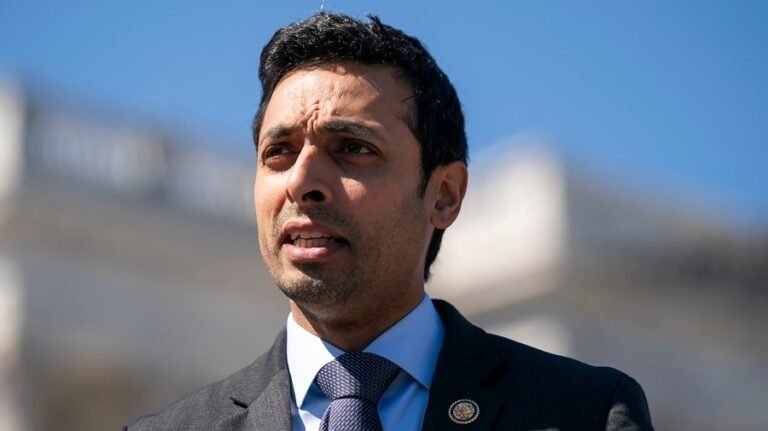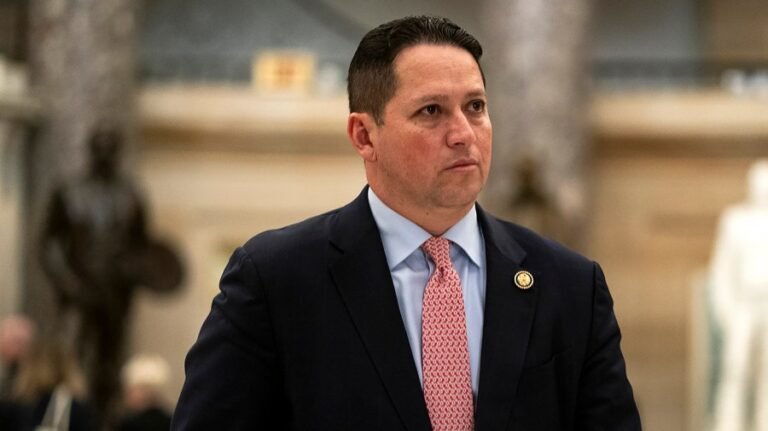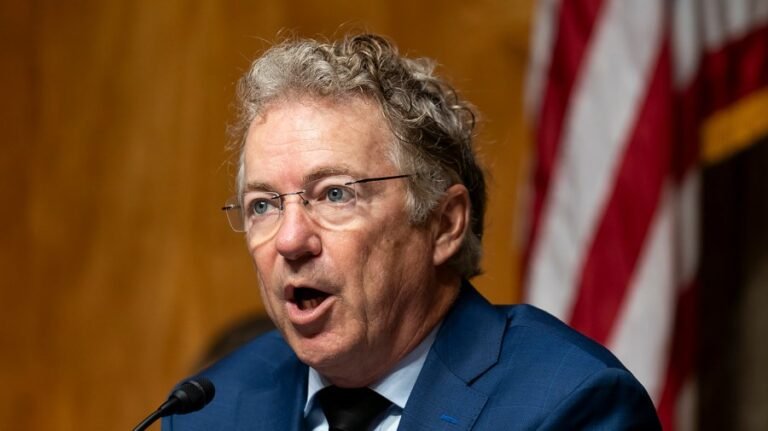
Republican and Democratic leaders agree: Closing the bank accounts of Americans for no apparent reason is wrong.
In recent years, major banks have begun the quiet, calculated and often callous closing of bank accounts belonging to honest, law-abiding Americans — typically without warning, cause or recourse.
The practice is called debanking. And, to put it plainly, it just ain’t right.
According to members of the Senate Committee on Banking, Bank of America “was the subject of 988 improper closure complaints and 584 improper account denial complaints.” JPMorgan Chase “was the subject of 1,423 improper closure complaints and 443 improper account denial complaints,” and in 2021, Chase closed the account of retired former National Security Adviser Gen. Michael Flynn’s nonprofit, citing “reputational risk.”
Wells Fargo “was the subject of 1,053 improper closure complaints and 350 improper account denial complaints“; it has faced allegations of closing long-standing customer accounts in “high-risk” categories, like firearms dealers.
Citigroup “was the subject of 742 improper closure complaints and 96 improper account denial complaints,” including closing personal and business accounts of Armenian Americans.
Most people are unaware of this practice until it touches them directly. Bank failures and employee embezzlements get far more attention from the media and policymakers. But to those affected, debanking is as devastating as being caught in a bank robbery crossfire — and the consequences can be permanent.
To put things in context, we are not talking about fraudsters, drug lords or terror financiers. Debanking is being used against men and women whose only crime is running a small business, engaging in lawful commerce or having views or associations that run counter to traditional orthodoxy, such as adult content creators. Some are foreign nationals. Others are part of religious nonprofits. Some are just on the conservative side of the political spectrum.
It has been happening to regular people — people like the owner of a barbershop in a historically Black neighborhood who manages an informal savings club. To his neighbors, the owner is a lifeline. But to the bank, he is a suspicious actor whose account gets frozen after depositing a large sum of money. There’s no warning and no conversation — just an ATM terminal denying him access to his own funds.
Or it could be a cybersecurity expert whose firm defends against hackers and cybercriminals. Because she interacts with cyberthreats, the bank froze her account, assuming she was the criminal.
Maybe it’s the owner of a bakery whose teenage son sells inert replicas of firearms online as collectibles. Because of his hobby, the bank closed down the mother’s account. Perhaps the next victim is a retired Marine and Civil War re-enactor who was told his bank account was closed because of his “military paraphernalia.”
These are not anomalies. They are becoming more commonplace as banks are increasingly guided — or misguided — by the concept of reputational risk, driven by the fear of being associated with certain businesses like adult entertainment, cannabis, firearms, crypto or fringe political groups.
Understandably, no bank wants to be grilled by a hostile Senate committee or slapped with a billion-dollar fine for missing a bad actor. Nor do they want to be accused of helping to finance terrorism or violent organizations. So they overreach. To avoid risk, they “de-risk” certain people, not based on their behavior but on categories and algorithms. This is not compliance. It is digital profiling.
Earlier this year, the chairman of the Senate Banking Committee, Sen. Tim Scott (R-S.C.), introduced the Financial Integrity and Regulation Management Act, which expressly prohibits federal regulators from using “reputational risk” as a justification for examining or penalizing banks.
In rare bipartisan agreement, Sen. Elizabeth Warren (D-Mass.) also highlighted thousands of complaints collected in recent years from people who could not open accounts or had them abruptly closed. “Big banks are relying on black-box algorithms and middlemen companies, and shutting down accounts without doing careful due diligence,” she said, citing Muslims, cannabis businesses and recently incarcerated people as victims.
Beyond the personal harm, the societal impact of debanking is enormous. In a digital economy, it widens the gap between the unbanked and the rest of the world, and forces good people into underground economies that cut them off from full economic participation.
Banks are meant to be neutral custodians of commerce, not referees of righteousness. To be sure, banks have a duty to fight illicit finance. But that duty should not include disenfranchising individuals based on vague reputational concerns.
Federal watchdogs should clarify what “reputational risk” means, and there must be much more transparency. Congress should also encourage banks to practice diligent risk analysis, not blanket exclusion. Regulators should reward, not penalize, banks that create culturally competent, innovation-friendly frameworks.
Every American deserves to know why their financial life has been upended. Vague form letters are not acceptable. A bank should not be allowed to destroy someone’s livelihood without a process for redress. Reasons must be specific, reviewable and appealable.
Most Americans who have had their accounts closed are not money launderers, cybercriminals, militia leaders or threats to national security. They are citizens. Taxpayers. Workers. Innovators. Parents. Patriots. They are being punished not for what they’ve done, but for how they are perceived.
Without question, banks must guard against criminality. But they should do so with discernment, discretion and decency. Otherwise, they are not protecting consumers. They are prosecuting them.
And in America, that just ain’t right.
Adonis Hoffman writes on business law and policy. He served in senior legal roles at the FCC and in the U.S. House of Representatives.






